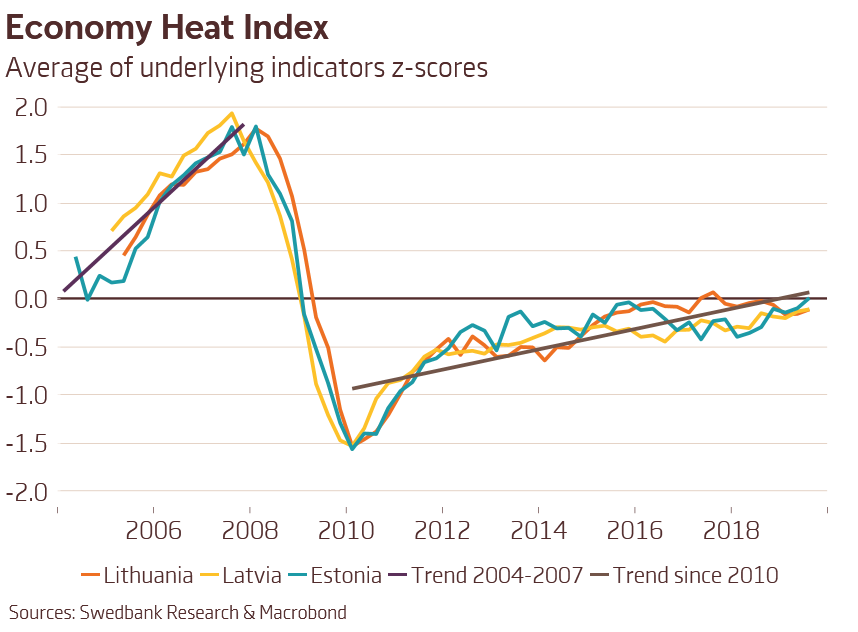The economies of the Baltic states are currently characterised by "solid but sustainable growth" and to ensure the decade-long trend is prolonged further, they should continue to avoid significant imbalances, according to a report released by Swedbank January 15 and dubbed its "Economy Heat Index".
"The temperature of Baltic economies has not changed significantly over the past year. Economies were characterized by tight labour markets, balanced external accounts, sustainable credit expansion and moderate inflation," said Swedbank.
"While small open economies are vulnerable to external shocks, the Baltics are currently very resilient, with chances of a 2009 scenario repeating being very slim. This year domestic demand is likely to be stronger than foreign demand and that could result in indices drifting slightly higher. Nevertheless, economies are unlikely to build up any significant imbalances in the near term," the report said.
On Latvia specifically, Swedbank said that while external demand faltered, household consumption looked comparatively stronger as the local labor market supports domestic demand.
In addition stronger demand for newly built housing meant that apartment prices rose faster than incomes.
"Core price pressures remained relatively unchanged and close to [the] historical average," it said.
The Heat Index is intended to measure changes in the balance between demand and supply in an economy to identify potential imbalances and risks in the economy.

























